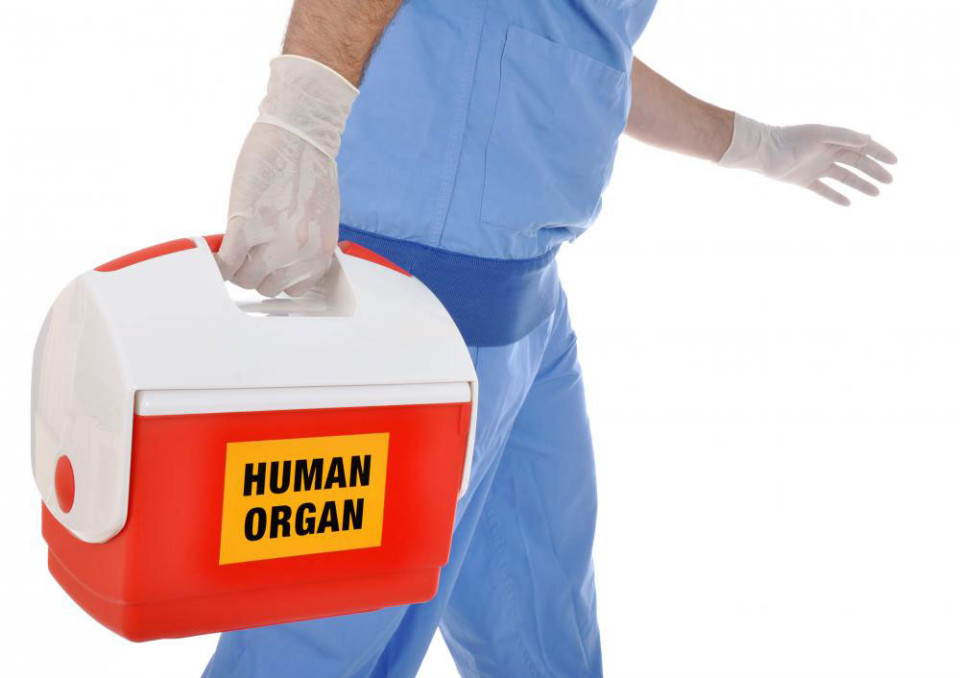Biru Kumar, a 34-year-old soldier came to us while he was battling for his life. The young man had developed fatal liver cirrhosis and the doctors had advised him to undergo a liver transplant. In Biru’s case, firstly, the new liver was to come from a family member as per the Indian Laws. Secondly, the donor had to be from a group compatible with that of the recipient’s. Also, the important factor in this case was that Biru Kumar’s mother was too old and therefore, she was ruled out as an option to be an organ donor. So, the patient was left with no option but to await his death.
And if you step into any hospital, there are millions of Biru Kumars in our country who suffer from end stage Liver or Kidney Disease or any organ failure and await their death helplessly, in a desperate need of an organ transplant.
They die painfully and in vain as there is seldom any solution to procure an organ for them and save their lives. The answer to Biru Kumar and millions of such patients is Cadaver or Deceased Organ Donation. Deceased organ donation is widely practised in the west but it’s almost absent in India.
Basically, organ donation takes healthy organs and tissues from one person for transplantation into another. And organs can only be donated either after the natural death of a person or if the person is declared brain dead, which was legalised in India under the ‘Transplantation of Human Organ (THO) Act’ in 1994. Since then it has been made possible to undertake multi-organ transplant activity from brain dead donors. In fact, kidneys, heart, liver, pancreas, intestines, lungs, bone and bone marrow, skin and cornea – all can be donated and transplanted to the patient waiting for the organ transplant, thus, prolonging his chances of survival and granting him a fresh lease of life.
What Needs To Be Done
With advancement in medical sciences, human organ donation is fast developing into a major treatment protocol and is accepted as the best line of treatment for wide range of fatal diseases. However, despite the success rate of organ transplant surgeries, India still lags behind in the number of people coming forward for the cadaveric donation programme.
Surprisingly though New Delhi has become the hub of organ transplant in Asia where more transplant surgeries are being conducted than any other city in the continent, still 99.9 per cent of all transplants are from their living family donors. This is contrary to the west, where more than 90 per cent of organs for transplants are from deceased donors.
The successful implementation of organ donation hinges on the education of the masses and a proactive approach towards cadaveric organ donation, counselling of relatives for organ donation in the event of brain dead patients and a great co-ordination amongst hospitals is required to support this programme.
Besides, the government should also make it compulsory to donate organs of brain dead patients as even one of such patients can help seven other patients suffering from critical stages of various diseases or organ failure to lead their normal lives. Other measures that can be adopted to spread awareness is through media channels or by screening documentary films based on organ donation, expanding the group of doctors for certification of brain dead people and also by honouring cadaver donor families, etc.
Organ Transplant Process
In India, a Hospital Organ Donation registry usually coordinates the process of cadaver organ donation, which is organ donation after death. A transplant coordinator evaluates each potential donor and determines the medical suitability of each organ. He obtains detailed medical information about the patient’s medical condition and his medical history.
For instance, in case of brain dead person, the transplant coordinator meets the potential donor’s next of kin, to offer the opportunity for donation. And if the next of kin agrees to donate, they will be asked to sign a consent form documenting which organs and/or tissues they wish to donate.
The recovery of the organs is performed in the operating room where the donor is being cared for. The transplant coordinator oversees the arrival and departure of the surgical recovery team. The recovery team consists of surgeons, nurses, the transplant coordinator and an organ preservation technician.
Just prior to being removed from the donor, each organ is flushed free of blood with a specially prepared ice-cold preservation solution. The organs are then placed in sterile containers, packaged in wet ice, and transported to the recipient’s transplant center. It is important to notice that heart and lungs must be transplanted within approximately four hours after being removed from the donor. Livers can be preserved between 12–18 hours; pancreas can be preserved 8–12 hours; intestines can be preserved approximately 8 hours; kidneys can be preserved 24–48 hours.
How Can I Be A Donor?
The procedure to register as a donor is very simple. All one has to do is register with a hospital/NGO/government agency by giving details about your age, blood group etc. You will be issued a card certifying you as a registered organ donor. We advise you to keep the card with you at all times and also to inform your family members regarding your decision to pledge your organs to help those in need.
Be a donor, give someone a second chance at life!!!



I Manohar lal Nihalani & my wife Kanta Nihalani had requested to send us donor’s card about a month back on e form. Which is awaited.
I am 73 old undergoing dialysis at BLK hospital My blood group is Apositve I am willing to my lever in exchange for a kidney Mobile no9871997841
Dear Dr. Negi and Organindia.org,
Can you please let us know how a healthy person, who is not currently a patient at any hospital, can will their body to hospitals for organ donation and other scientific, non-profit uses? As a registered organ donor, if I die in an accident on the road, or even alone at home, how can I ensure that my post-mortem wish to be an organ donor will be fulfilled? I realise that there is a very narrow window of time post-mortem, for which the cadaver is suitable for organ donation. However, what is the window of time, post-mortem, during which the corpse is suitable for use in medical colleges? If I state in my will that my body should be donated to science, is there a web portal, or an all-India organ donor’s hotline, which will spare my grieving heirs the additional stress of finding a hospital which will accept the cadaver?
It would be of a great help if you could post information for potential donors and their heirs / lawyers / anyone else who may be ultimately tasked with cadaver donation on this or another website.
It would really help if your website (or about
Dear Firoza,
You can log on to http://www.organindia.org and find the Helplines as well as information. We will be posting the information on Body Donations soon. Some of it is already there on the website.